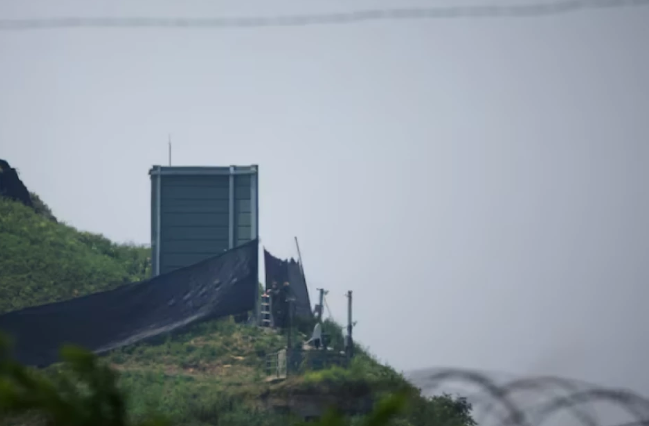South Korea’s use of loudspeakers for psychological warfare against North Korea has faced scrutiny and legal challenges over their perceived lack of volume, prompting doubts about the effectiveness of broadcasting propaganda messages into the reclusive North.
The loudspeaker broadcasts, which resumed on June 9 for the first time since a now-defunct inter-Korean agreement banned them in 2018, were meant to reach as far as 10 kilometers (6.21 miles), including the city of Kaesong with its nearly 200,000 residents.
However, audits conducted at the time revealed that the new speakers did not meet the intended standards and were not as powerful as initially claimed by the military.
Former navy officer Kim Young-su, who investigated the matter, revealed that although the speakers passed two out of three initial tests in 2016, the trials were conducted during times when sound travels farthest, such as in the morning or at night.
However, South Korea now rarely operates the speakers during these times to avoid disturbing nearby residents, according to Kim.
The Ministry of National Defence filed a lawsuit against the manufacturer due to these issues, but the case was dismissed by the court, citing the influence of environmental factors on performance.
Subsequent tests in 2017 demonstrated that messages or songs from the speakers could not be understood beyond 7 kilometers, and often less than 5 kilometers, raising concerns about their effectiveness in reaching Kaesong.
Kim Sung-min, a North Korean defector who operates a Seoul radio station broadcasting news into North Korea, noted that the mountainous border terrain and North Korea’s own loudspeakers in the area further diminish the reach of South Korea’s psychological warfare efforts.
Despite these challenges, South Korean messages and K-pop tunes banned in the North can still have a significant psychological impact on North Koreans who hear them, according to Kim Sung-min.
“These broadcasts play a role in instilling a yearning for the outside world, or in making them realize that the textbooks they have been taught from are incorrect,” he said.
At least two North Korean soldiers from the frontlines defected to the South in 2017 after listening to loudspeaker broadcasts, local media reported, citing South Korean officials.
The angry North Korean reaction to the broadcasts also suggests the loudspeakers strike a nerve with the authoritarian country, said Steve Tharp, a retired U.S. Army officer who spent years working along the border.
“We know that the North Koreans find them partly effective because they have spent a lot of time getting them turned off,” he said.



